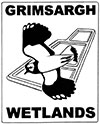Chroicocephalus ridibundus
Occasional
Summary
The name of this species is a little misleading since the head of this small gull is more brown than black.
Black-headed gulls are found inland and there are lots sighted on the wetlands.
You are most likely to hear these gulls before you see them, as they are noisy birds and are usually seen in flocks.
They eat worms, insects, fish and carrion.
Black-Headed Gull facts and statistics
Length: 34-37cm
Wingspan: 100-110cm
Weight: 200-400g
How to identify
Adults have a dark chocolate brown head during breeding, with a white triangle in the outer part of their wing, and black under tip of wing.
Their back is pale gray and underside is white. In Winter, they have a dark spot behind their eyes.
Conservation status
Amber
Habitat
Farmland
Grassland
Marine
Urban and suburban Wetland
Black-Headed Gull sightings at Grimsargh Wetlands






